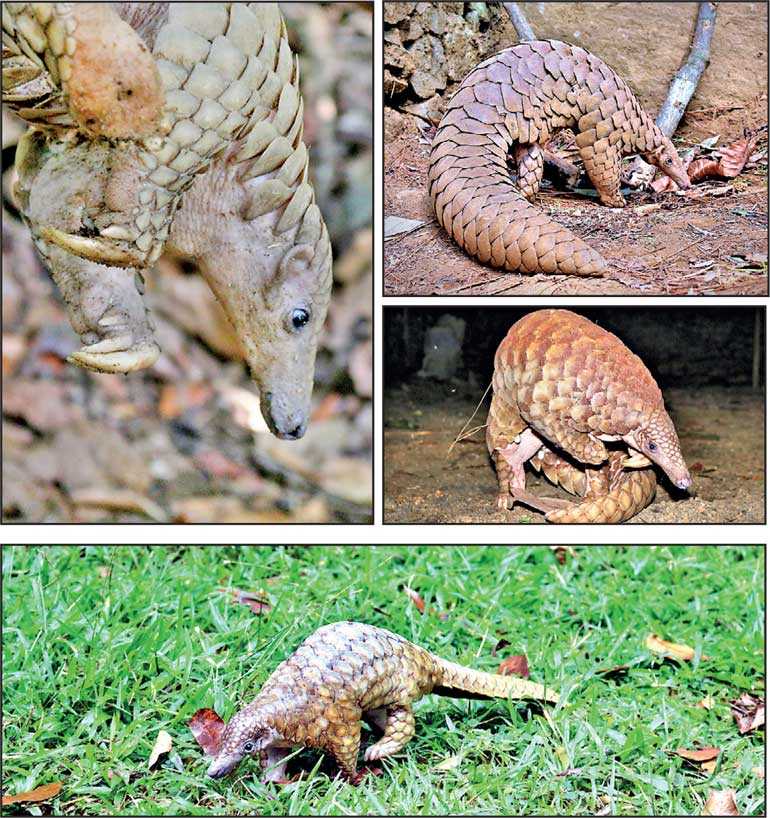Monday Feb 23, 2026
Monday Feb 23, 2026
Wednesday, 20 May 2020 00:00 - - {{hitsCtrl.values.hits}}

The WNPS monthly lecture will move to the online platforms until the social distancing rules are removed and public gatherings are allowed by the authorities. The society will commence the online lecture series from its May lecture.
 |
| Dr. Priyan Perera |
 |
Free online registration: https://forms.gle/ATRtVY1k3uxaFDrg6.
The Indian pangolin (Manis crassicaudata) is a solitary, elusive and predominantly nocturnal mammal native to South Asia. Their high adaptability has successfully enabled them to live in an array of natural and human-modified habitats such as tropical rainforests, subtropical thorn forests, deciduous forests, and open scrublands. Despite its ability to adapt to different habitats, Indian pangolin populations are considered to be declining across its range. Key threats include hunting and poaching for its meat and scales, illegal international trade, habitat loss and fragmentation.
Pangolins are considered to be the most trafficked wild animals in the world as scales, meat and other derivatives have a high demand in East Asian markets. The growing knowledge on the international trading and trafficking of pangolins, and the recent listing of Indian pangolin in Appendix I of CITES has generated considerable interest on the species among researchers and conservationists in Sri Lanka.
Meanwhile, overexploitation of other Asian pangolin populations is believed to have resulted in increased exploitative attention on M. crassicaudata in Pakistan, India and possibly Sri Lanka for illicit international trade. However, lack of reliable scientific information has impaired the accurate assessment of their conservation needs. Many facts on the distribution, ecology and behaviour of M. crassicaudata in Sri Lanka remained as mysteries till the initiation of ‘Pangolin Conservation Project’ by the Biodiversity and Sustainability Research Group of the Department of forestry and Environmental Science, University of Sri Jayewardenepura in 2014.
This narrative talk discusses the current knowledge on Indian pangolin with special reference to Sri Lanka, and identifies key research priorities for better conservation planning of the species.
Dr. Priyan Perera is an environmentalist and a Senior Lecturer at the Department of Forestry and Environmental Sciences, University of Sri Jayewardenepura. Priyan received his PhD in Forestry from the Louisiana State University, Baton Rouge LA, USA in 2011 and holds Masters’ degrees in Forestry and Environmental Conservation from the same University.
Priyan is interested in interdisciplinary research related to environmental management and wildlife conservation, and currently heading the Biodiversity and Sustainability Research Group of the Department of Forestry and Environmental Science, University of Sri Jayewardenepura.
His research interests and some of the ongoing works are related to recreation ecology, protected areas management, biodiversity conservation and ecotourism. In 2014, Dr. Priyan initiated the flagship research project on Indian pangolin conservation to uncover the information on behaviour, ecology and threats for the species, which remained largely unknown in the Sri Lankan context. To-date, this research project has led to several international scientific publications on the species with the newly generated information having been used in the latest IUCN Global Red List assessment of Indian pangolin. Dr. Priyan is also a member of the IUCN Pangolin Specialist Group, Zoological Society of London, London, UK.